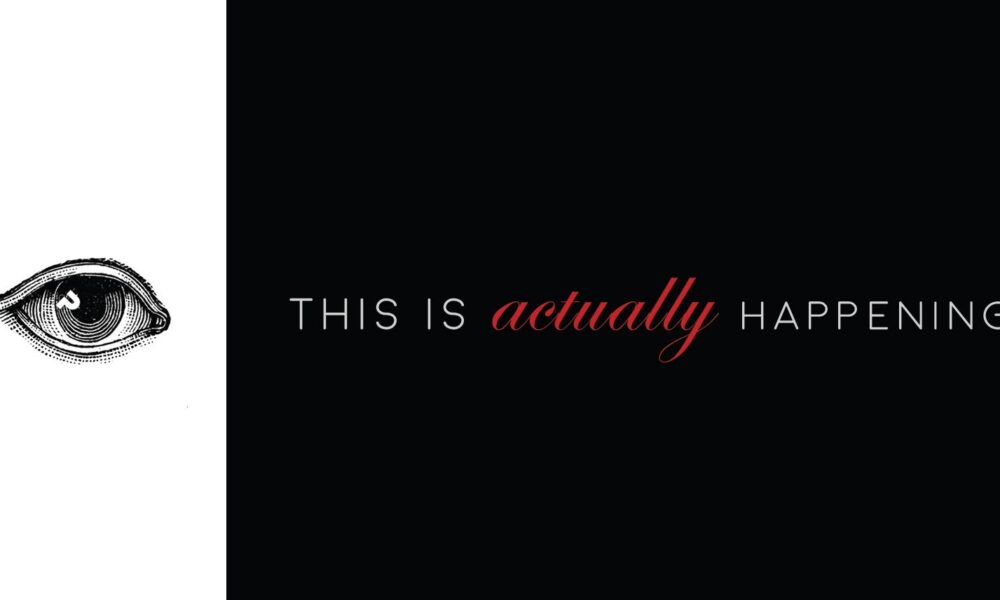One particularly warm night this September, I found myself wide awake, sweating. Frustrated at my inability to sleep, I put on a podcast to take my mind off the heat. The show was an old favourite: This Is Actually Happening (TIAH). In high school, I listened to the show and found it riveting to learn about the firsthand experiences of guests. But upon my return to it that night, newfound concerns about the show’s ethics overshadowed any entertainment the podcast could offer.
TIAH began as an independent podcast based in Oakland, California in Sep. 2013. In October. 2020, it was bought by Amazon-owned podcasting company Wondery. Each episode features a guest who recounts and reflects on personal events “that have dramatically altered” their life. Many of these experiences include traumatic events such as abuse, death, and mental health struggles. The podcast’s production style is extremely personal: The guests recount their experiences in an unscripted, organic way, and any prompting from the host, Whit Missildine, is edited out to create an emotionally heavy monologue. The apparent lack of a moderator makes listening to the guest’s experiences particularly intimate—it feels like they’re speaking straight to the audience. The vulnerable, direct tone in which the experiences are recounted only heightens the painful aspects of the guests’ experiences.
But while it includes personal accounts of dark and traumatic subject matter, TIAH frames the guests’ struggles simply as content for listeners. This is reflected in the show’s marketing. For example, episodes are titled to pique listeners’ interest about the life-changing event, such as “What if you went missing?” and “What if your best friend was dying?” These labels reduce people’s complex experiences to one dramatic detail for shock factor. Similarly, the TIAH website groups episodes into categories such as the “assault collection” and the “mental breakdown collection.” Not only do these labels generalize guests’ experiences into a single eye-catching element, but they also use this feature to group stories solely based on their darkest moment. Through this insensitive classification, the podcast sensationalizes the trauma of personal stories without showing respect toward those who experienced them.
Dramatizing survivors’ experiences isn’t just inconsiderate to the individual. Making their experiences into entertainment distances audiences from their obligations to support survivors, respect their stories, and address systemic issues—such as inadequate mental health services in the U.S. and Canada that are often the source of trauma. By doing this, the podcast capitalizes on pain without addressing any root causes or helping survivors heal.
Based on information shared by individuals who appeared on the podcast in several threads on the TIAH subreddit, it appears that storytellers aren’t even paid to speak on the show. According to these former guests, the interview process involves repeating their often traumatic experiences for upwards of four hours. There are many ways to interpret this: At best, TIAH allows survivors who willingly volunteer their time a chance to tell their story—perhaps because they think it will benefit others or help them heal. At worst, the show frames the trauma and free labour of others as an exciting story to garner more listeners and more advertising revenue. Either way, it’s Wondery who pockets the profit generated from this emotionally taxing labour, not survivors.
Despite these pitfalls, TIAH has a sizable fanbase. The private TIAH fan Facebook group has approximately 13,000 members, many of whom report that the show validates their own experiences and allows them to connect with other survivors. While TIAH may benefit some listeners in this way, it prioritizes commercialization over support for more accessible mental health resources beyond the TIAH fan community. As long as the show sensationalizes survivors’ trauma, any good it offers comes at the cost of disrespecting survivors and pocketing the change.









Pingback: The McGill Tribune presents: THE BEST AND WORST OF 2022 – SSM